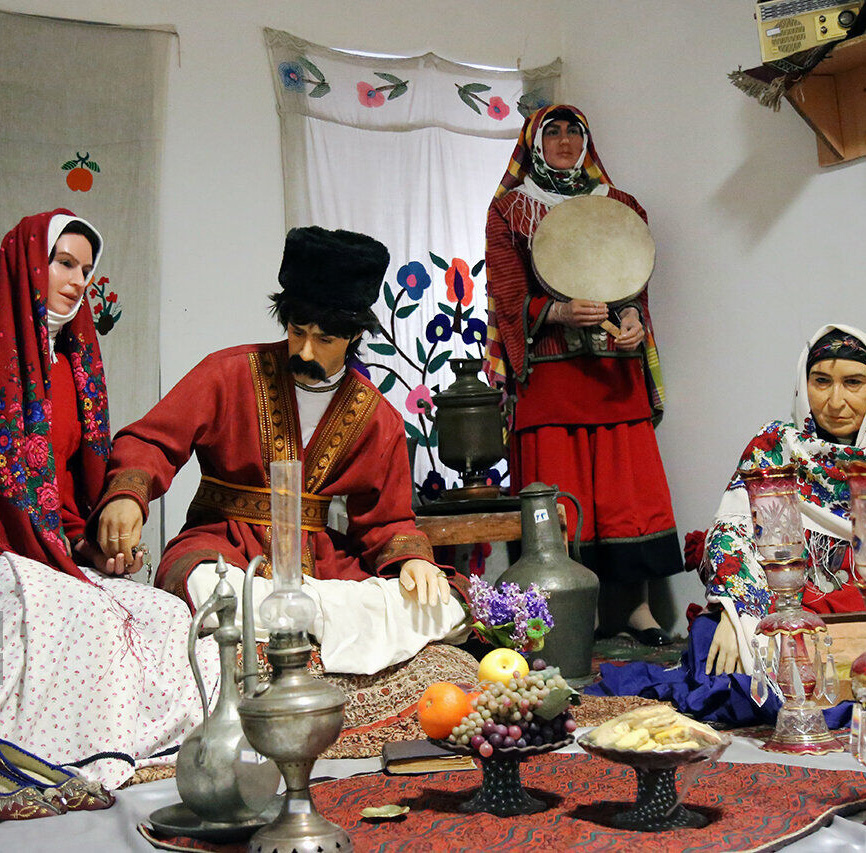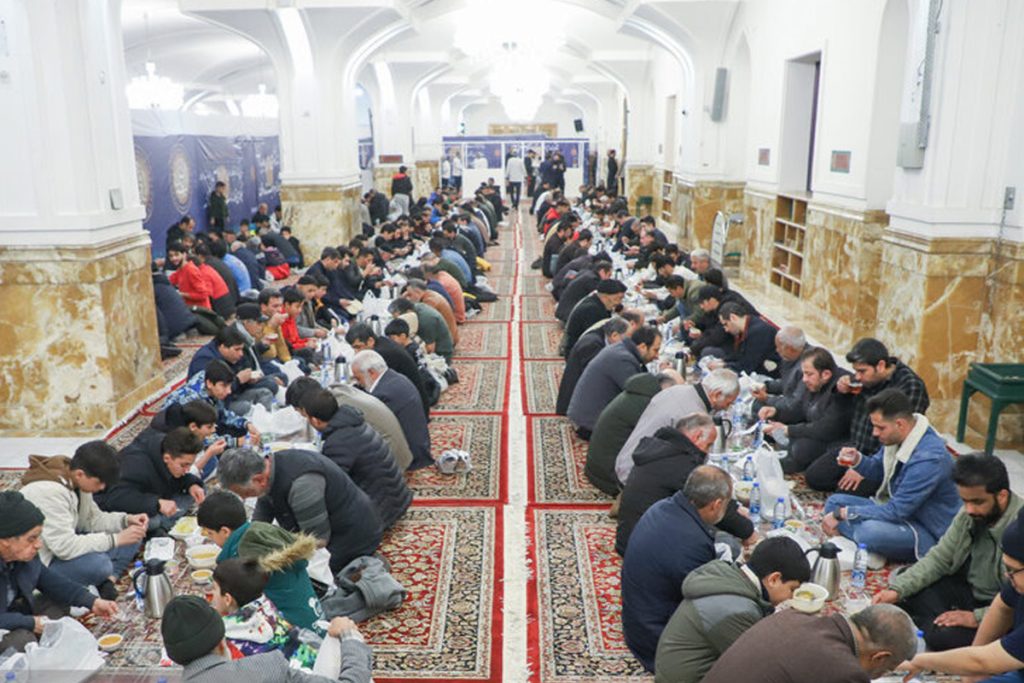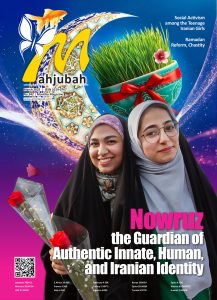Introduction
Should one continue to recite the Holy Qur’an during the blessed month of Ramadan? Or should one meditate on it, or perhaps do both? It is customary for those who fast during this month to recite one ‘Juz’ (part) of the Holy Qur’an every day. I leave the answer to this question to the understanding of the dear readers. Of course, both practices are virtuous and deserving of divine reward.
During the holy month of Ramadan last year, I had the opportunity to discuss the verses of the Holy Qur’an related to health, which, thanks God, were well received. These discussions were later broadcast in more comprehensive three-minute sessions on the Fahma program of the Qur’an Network on Iranian Radio.1 I hope these discussions will soon be compiled into a book. Imam Reza (AS) is quoted to have said: “Whoever recites one verse of the Qur’an in the month of Ramadan, it is as if they have recited the entire Qur’an in other months.” 2 It seems that this narration, in addition to emphasizing the recitation of the Qur’an during Ramadan, also highlights the importance of contemplating its verses.
 The Qur’anic Verses Related to Genetics
The Qur’anic Verses Related to Genetics
Several verses in the Holy Qur’an refer to this expansive and significant field of science. It should be noted that this author does not claim to be an interpreter of the Qur’an but merely presents his personal reflections in order to seek feedback from scholars.
A – Absence of Gender Superiority
The phrase ‘خَلَقَ لَكُمْ مِنْ أَنْفُسِكُمْ أَزْوَاجًا’ (He created for you mates from your own selves) has been repeated three times in the Holy Qur’an.3 The repetition of this phrase appears to underscore the importance of the subject. Its practical outcome, in brief, is as follows: the absence of gender superiority, i.e. neither men nor women are superior to one another, justice, man’s vicegerency of Allah; and the manifestation of divine power. However, the genetic beauty revealed through these verses lies in the genetic similarity between men and women. Women possess two X chromosomes, one of which is naturally inactive. Men, on the other hand, have two chromosomes: an X and a Y. The Y chromosome contains only about 50 genes, while the X chromosome carries approximately 1600 genes.
If this was not the case, the organs of male and female bodies would be vastly different. The Holy Qur’an emphasizes that this similarity fosters peace and harmony between the two. In two verses, the same concept is highlighted in praise of the Holy Prophet of Islam (PBUH), using the expressions ‘مِنْ أَنْفُسِهمْ’ (from their own selves) and ‘مِنْ أَنْفُسِكُمْ’ (from your own selves), respectively. 4
This signifies that God has granted the believers a great favor by sending a messenger from among themselves. In this way, Muslims are able to communicate more effectively, understand more deeply, and derive greater comfort from him. A more detailed explanation of this matter would require more time and patience than can be afforded in this article.
B – Nature and Nurture
The issue of ‘Nature and Nurture’ in human life – concerning qualities and actions – has been extensively debated by scholars, with discussions often centered on which factor holds greater importance and influence. This matter has been most eloquently addressed in the Holy Qur’an, using minimal words, in the description of the life of Hazrat Maryam (peace be upon her). In the words of the Holy Qur’an: ‘فَتَقَبَّلَهَا رَبُّهَا بِقَبُولٍ حَسَنٍ وَأَنْبَتَهَا نَبَاتًا حَسَنًا وَكَفَّلَهَا زَكَرِيَّا ۖ كُلَّمَا دَخَلَ عَلَيْهَا زَكَرِيَّا الْمِحْرَابَ وَجَدَ عِنْدَهَا رِزْقًا ۖ قَالَ يَا مَرْيَمُ أَنَّىٰ لَكِ هَٰذَا ۖ قَالَتْ هُوَ مِنْ عِنْدِ اللَّهِ ۖ إِنَّ اللَّهَ يَرْزُقُ مَنْ يَشَاءُ بِغَيْرِ حِسَابٍ’ (Thereupon her Lord accepted her with a gracious acceptance, made her grow up in a worthy fashion, and He charged Zechariah with her care. Whenever Zechariah visited her in the sanctuary, he would find provisions with her. He said, ‘O Mary, from where does this come for you?’ She said, ‘It comes from Allah. Allah provides whomever He wishes without any reckoning.’)5
By explaining the process of planting and germination, we can observe that, in addition to good seeds – which represent genetics – factors such as water, food, air, light, and nutrients play a crucial role in the development of human beings, as well as in their actions and behavior. This concept is further clarified in the Qur’anic verse referring to special sustenance, which symbolizes the environment. Agriculture encompasses three stages: planting, growing, and harvesting, all of which are metaphorically expressed through the idea of germination.
This author aims to use these two examples of verses from the Holy Qur’an to draw the attention of the readers of this magazine to deeper contemplation on the Qur’anic verses, particularly with a focus on health. It is hoped that we will seize the golden opportunity of the holy month of Ramadan to reflect more profoundly on the creation of humanity.
C – Verses and Hadiths on Fasting and Health
In the second part of this article, I will discuss verses related to fasting and health. In verses 183 to 187 of Surah Al-Baqarah, the obligation of fasting is mentioned, highlighting its existence since earlier times. Fasting is described as a means of attaining piety. The obligation of fasting is waived for those who are ill or traveling. Another verse states that fasting men and women will receive forgiveness and a great reward from God.6
It has been narrated in a hadith from Imam Baqir (AS) that Islam is founded on five pillars, one of which is fasting. 7 In another instance, he states: “Zakat is obligatory for everything, and the Zakat of the body is fasting. 8
In the commentary of verse 153 of Surah Al-Baqarah, where God commands the believers to seek help from prayer and patience, Imam Baqir (AS) said: Patience is fasting. The Holy Prophet (PBUH) said in a short hadith: “Fast until you become healthy (9). Imam Ali (AS), too has said: “Fasting is one of the two causes of health.
In the commentary of verse 153 of Surah Al-Baqarah, where God commands believers to seek help through prayer and patience, Imam Baqir (AS) has explained that patience refers to fasting. The Holy Prophet (PBUH), too, has said in a concise hadith: “Fast so that you may attain health”.9 Similarly, Imam Ali (AS) stated: “Fasting is one of the two foundations of health”.10
The Prophet Muhammad (PBUH) said: “The stomach is the home of all ailments, and abstinence and forbearance are the best remedies.”11 It is evident that the hadith refers to the entire digestive system, but for the sake of brevity and perhaps to align with the understanding of the Arabs at that time, only the stomach is mentioned.
Concluding Remarks
By examining recent articles in medical science that discuss the significance of fasting, it can be concluded that fasting from the morning call to prayer (Fajr) until the evening call to prayer (Maghrib) – by abstaining from food and drink – helps regulate the body, allows the digestive system to rest, facilitates the elimination of waste products, and enhances the immune, nervous, and hormonal systems.
Of course, these benefits are distinct from the spiritual advantages of fasting. It is evident that fasting softens the human spirit, strengthens willpower, and moderates instincts. These effects have been extensively discussed in numerous articles published in reputable journals. Fasting has been shown to aid in the treatment of conditions such as diabetes, high blood pressure, hyperlipidemia, digestive disorders, metabolic syndrome, and atherosclerosis.
In the second part of this article, an effort has been made to briefly highlight some key points related to fasting and health, encouraging our dear readers to explore and investigate this important topic further. It is hoped that God Almighty will include our names among those who truly observe fasting. I am confident that your feedback will contribute to a clearer and more comprehensive understanding of this subject.
Endnotes
1 – http://radio.iranseda.ir/
2 – Bihar al-Anwar, Vol. 93, P. 346
3 – Surahs: Rum 21; Nahl 72; and Shura 11
4 – Surahs; Aal-e Imran Verse 183 and Tawbah, Verse 187
5 – Surah Aal-e Imran, Verse 37
6 – Surah Al-Baqarah, Verse 184; Surah Al-Ahzab, Verse 35
7 – Safinat al-Bihar, Vol. 2, P. 43
8 – Wasa’il al-Shia, Vol. 7, P. 289
9 – Bihar al-Anwar, Vol. 59, P. 267
10 – Ibid.
11 – Ibid, Vol. 62, P. 290
by: Dr. Seyyed Mohammad Akrami, Professor of Genetics, Tehran University of Medical Sciences







